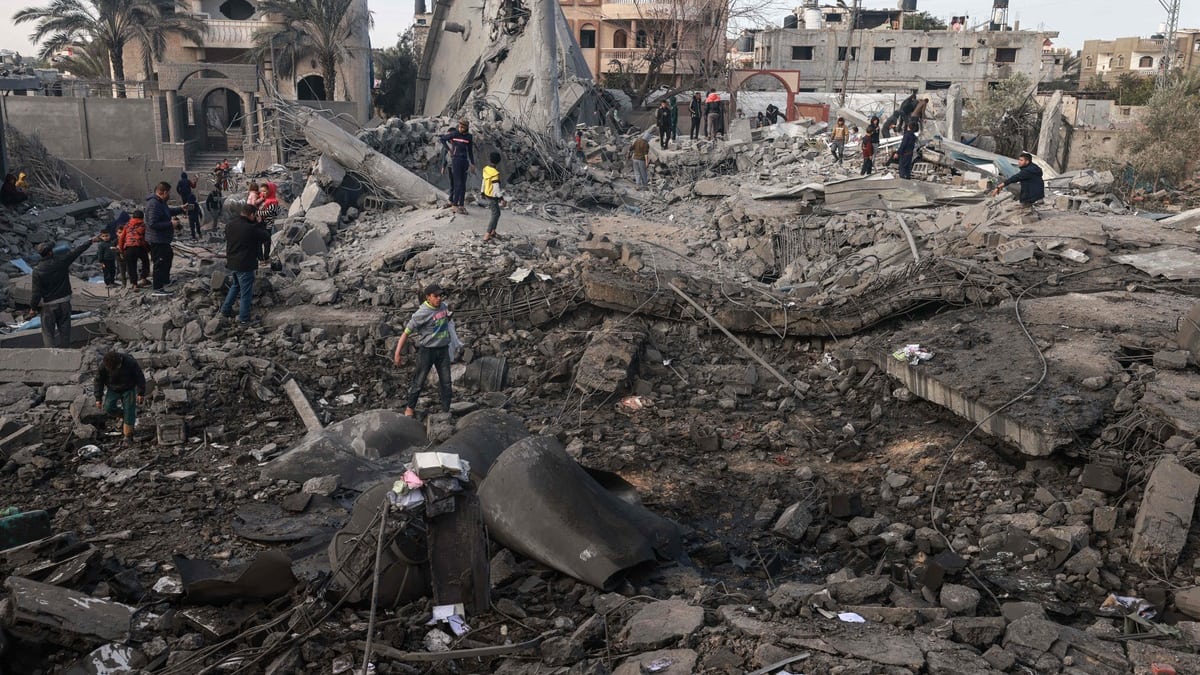
The United Nations' highest court said on Friday that Israel must prevent any possible incitement to “genocide”, issuing a historic ruling in a case that has attracted global attention.
The International Court of Justice, headquartered in The Hague, declared that Israel must take “all measures within its power to prevent and punish direct and public incitement to commit genocide.”
• Read also: The Hamas Ministry of Health announces that the death toll has risen to 25,900
• Read also: Israel accuses the World Health Organization of “collusion” with Hamas
“Inverted world”
Adila Hashim, a South African lawyer, stressed during the hearings earlier this month that “genocide is not announced in advance.”
“But this court has the advantage of evidence presented over the past 13 weeks that undoubtedly shows a pattern of conduct and intent that supports a plausible allegation of genocide,” she added.
Ahead of Friday's session, Foreign Minister Naledi Pandor said South Africa had “hope” and that the important thing was to highlight “the plight of innocent people in Palestine.”
This issue aroused strong emotions in Israel. “The world has turned upside down,” Prime Minister Benjamin Netanyahu said. Israeli lawyer Tal Becker told the International Court of Justice: “If there are acts that can be described as genocide, they were committed against Israel.”
The court's orders, which decide disputes between states, are legally binding and final. However, it has no means of enforcing it. For example, Russia ordered the suspension of its invasion of Ukraine.
Mr. Netanyahu has already indicated that he will not feel compelled to follow the court order. “No one will stop us, not The Hague, not the axis of evil, not anyone else,” he said.
Hamas pledged on Thursday to respect the ceasefire if the International Court of Justice requests it, but on the condition that Israel also adheres to it.
“Huge” symbolic impact.
But if the court decides there is a risk of genocide in Gaza, it could have geopolitical ramifications.
“It is much more difficult for other countries to continue to support Israel in the face of a neutral third party who believes there is a risk of genocide,” McIntyre said.
“States could withdraw their military or other support for Israel in order to avoid this,” she added, also emphasizing the “enormous” symbolic impact of any resolution against the Jewish state under the Genocide Convention, taking into account its history.
Pretoria acknowledged the “weight of responsibility” of accusing Israel of “genocide”, but said it must fulfill its obligations under the convention.
The war broke out due to the unprecedented attack launched by Hamas on Israeli territory on October 7, which resulted in the killing of more than 1,140 people, most of them civilians, according to a census conducted by Agence France-Presse based on official data.
Israel pledged to “annihilate” Hamas and launched a large-scale military operation that killed 26,083 Palestinians, the vast majority of them women, children and teenagers, according to the Islamic movement's Ministry of Health.






